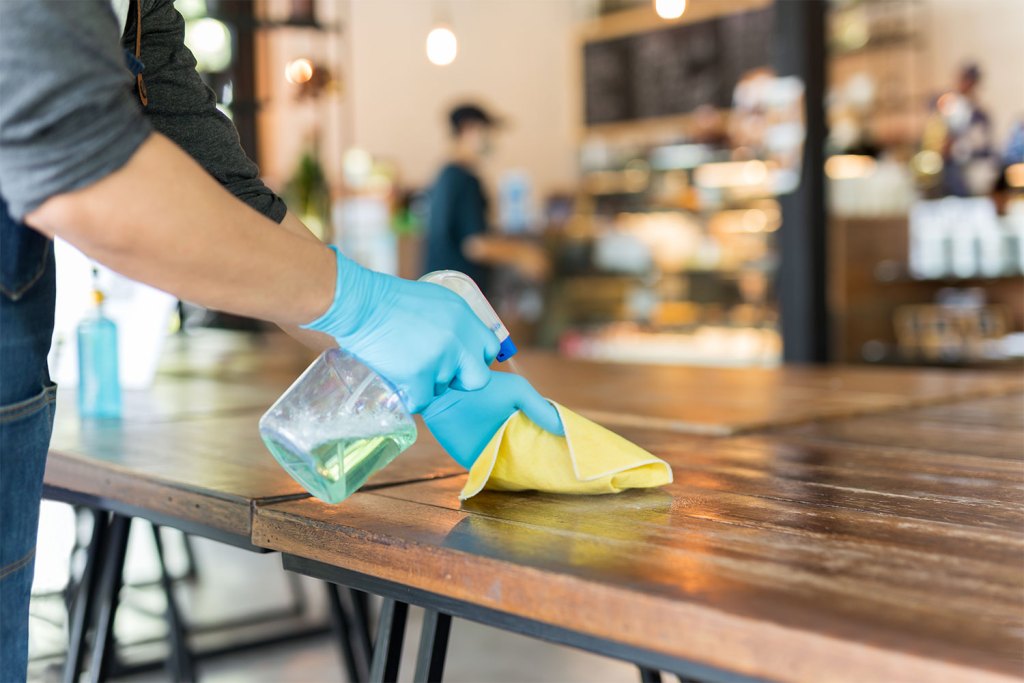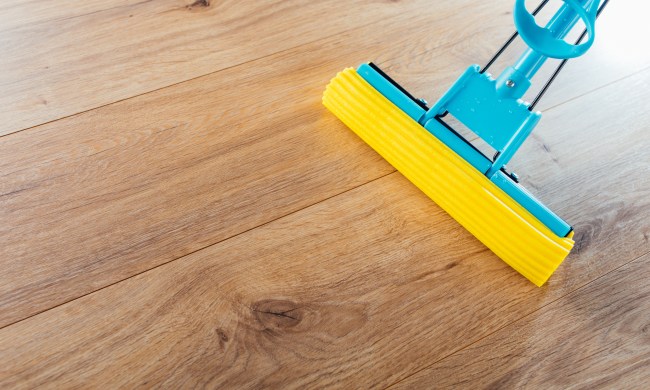Tools can collect all sorts of gunk, dirt, rust, and grime that can be a huge pain to remove without the right cleaning solution. Bleach and vinegar are known for their versatility and grunge-fighting strength. Bleach is an aggressive chemical product used for cleaning many materials and objects. Vinegar, on the other hand, is an acidic solution. Don’t let the fact that you can find vinegar in your salad dressings and condiments fool you, though. Vinegar is still a very powerful solution that can be great for cleaning tools.
Using bleach on tools

Gardening tools: Sterilizing your gardening tools is important if you want to prevent the spread of harmful pathogens in your garden. To use bleach to disinfect gardening tools, you can mix a 10% bleach solution with 90% water and do a 30-minute soak. It is important to rinse your tools afterward to prevent corrosion.
Screwdrivers and wrenches: Many screwdrivers and wrenches are made of steel. Steel and bleach do not make the best pair. Oftentimes, bleach on steel will cause corrosion, which leads to rust.
Hammers and drills: The handles of hammers and drills are oftentimes made of plastic or rubber. Bleach can help prevent mold and kill germs that may be living on the plastic or rubber. Bleach may discolor rubber, but it’s effective when it comes to disinfecting.
Wooden tools: Household laundry bleach that is safely diluted will kill mildew on your wooden tools. It can also remove dye-based stain — but not pigment-based stain — from wood.
Regardless of what tools you need to clean, bleach always needs to be diluted to avoid any damage. Dilute bleach with water and always rinse bleach-soaked tools afterward to protect them from corrosion and rusting.
Using vinegar on tools

Rusted tools: Vinegar is the go-to solution for your rusted tools. It is just a matter of soaking the rusted tool in straight vinegar for about three hours. After soaking, rinse and wipe off any remaining rust — it should come off easily.
Steel and metal tools: Use vinegar on metal tools like screwdrivers and wrenches. It is not as harmful as bleach and won’t cause corrosion. Also, cleaning your metal tools with vinegar will help prevent rust if your tools often sit in a wet environment.
Wooden tools: Vinegar can clean all types of wood. Vinegar makes an excellent wood cleaner because it won’t warp wood as other products do. You don’t have to worry about using it on stained wood, either, because it won’t damage any finish, unlike bleach. Cleaning with vinegar is a green alternative as well because it is not as toxic as bleach.
Hammers and drills: Hammers, drills, or any other tool with a plastic or rubber handle can be easily cleaned with vinegar. Vinegar is not damaging and can help to disinfect handles. It is not, however, as sterilizing as bleach can be.
Bleach pros
Chlorine bleach is a tremendously effective germ killer. Bleach is one of the few domestic cleaning solutions that is regulated by the U.S. Environmental Protection Agency (EPA). This means that is has been tested to show that it kills microorganisms. Bleach is easy to find, inexpensive, and effective. It can be a great solution for disinfecting and sterilizing your tools.
Bleach cons
Bleach is very corrosive, meaning that it could corrode different surfaces and leave rust behind. If bleach is in contact or mixed with other cleaning products, it could react with it and release dangerous gases, like ammonia. Bleach is also very toxic.
Vinegar pros
Vinegar’s acidity is what makes it such a good cleaner. Since vinegar is so acidic, it can counteract sticky buildup. It can also dissolve away soap scum, rust, and grime. It is environmentally friendly and not harmful to humans. Overall, vinegar may be the better bet when cleaning tools because it is safer and won’t harm the tools.
Vinegar cons
Vinegar lacks when it comes to disinfecting and sterilizing. If that is what you are after, bleach may be the better option. Vinegar is not as strong as bleach and won’t ensure your tools are sanitized.
Best practices and personal safety
Bleach and vinegar can both be effective when cleaning your tools. With bleach, it is important to ensure you dilute it with water before applying it to any material. Straight bleach is too powerful and can be corrosive and damaging. Additionally, it is always important to take safety precautions when handling bleach. Eye protection and masks are a great way to ensure any splashes won’t make their way into your eyes or mouth. Bleach cannot be mixed with anything other than water. If mixed with other cleaning materials, it can release toxic gases that are harmful to humans. When used safely and properly, bleach is great for when you need to sanitize your tools that are made of wood, rubber, or plastic. Try to avoid using bleach on metals unless it is extremely diluted and rinsed off afterward.
Vinegar is the go-to solution for rusted tools. It can remove years worth of rust in a matter of hours. Vinegar is also great for getting sticky residue or dirt off any object. It is a safe, acidic liquid and requires little precaution when using. Keep vinegar out of your eyes and wash off your skin after use. Overall, vinegar cannot provide the same level of disinfecting that bleach can, but it is better for cleaning more materials and tools since it isn’t as harmful.


